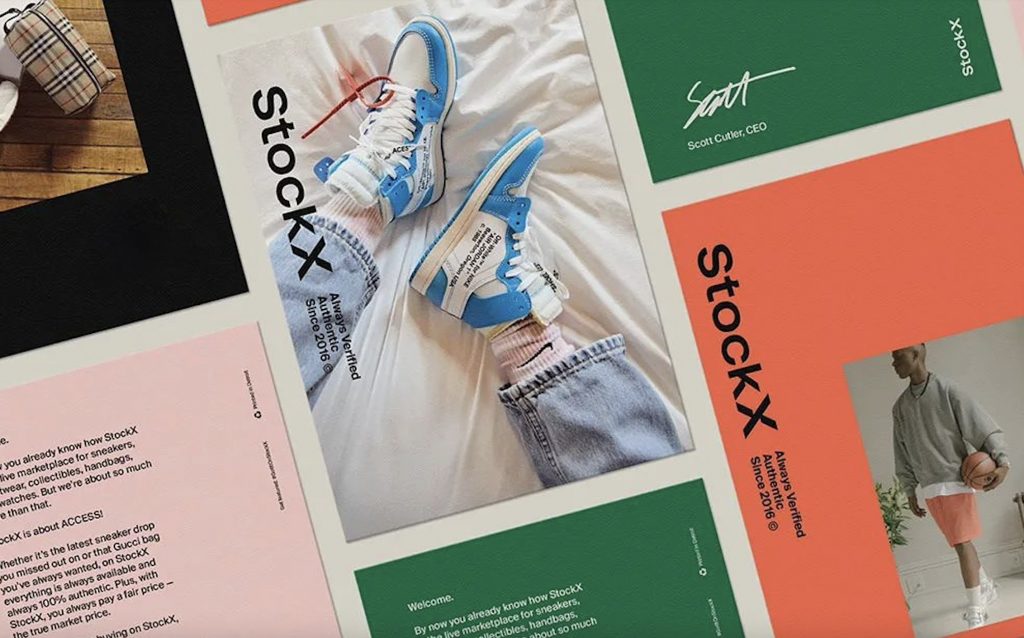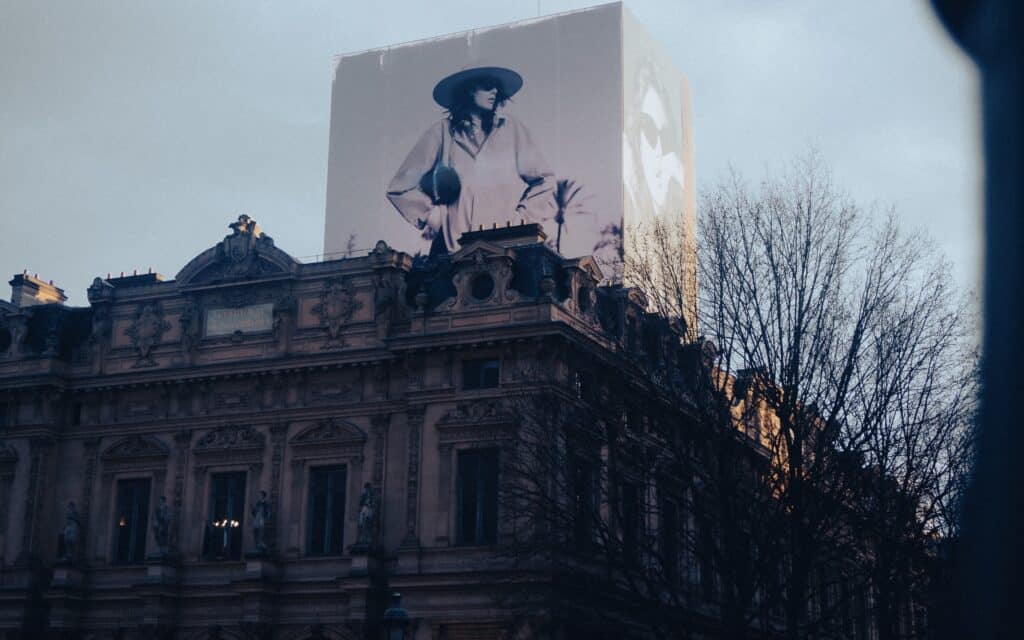StockX has responded to the latest version of the non-fungible token (“NFT”)-centric trademark lawsuit that Nike filed against it early this year. In the answer that it filed with a New York federal court on Monday, StockX denies the bulk of the claims that Nike has lodged against it, including the newly-added counterfeiting and false advertising claims, asserting that they “lack merit, disregard settled doctrines of trademark law … and show a fundamental misunderstanding of the various functions NFTs can serve,” while also characterizing the Swoosh’s amended complaint as “nothing more than a failed attempt to bolster its still meritless claims.”
In a lengthy preliminary statement, StockX asserts that it is “lawfully us[ing] NFTs to allow users to more efficiently transact in authentic goods.” Specifically, the Detroit-based streetwear and fashion marketplace claims in its answer that its recent introduction of NFTs enables consumers to track ownership of physical offerings, including Nike sneakers, making it so that the NFTs, themselves, “essentially serve as a claim ticket for frequently traded physical products,” thereby, “transforming the trading experience on its platform by increasing efficiencies and decreasing transaction costs for buyers and sellers.”
While the Vault NFTs bring utility to the table by using blockchain to “permanently and publicly store records of each NFT transfer [and] make the process a transparent and secure way to track ownership of physical items,” StockX argues – yet again – that the Vault NFTs “are absolutely not ‘virtual products’ or digital sneakers.” (StockX has been driving home this point from the outset.) Rather, StockX asserts that “each Vault NFT is tied to a specific physical good that has been authenticated,” and thus, the NFTs, themselves, have “no intrinsic value beyond this process.” Doubling-down on this, StockX also notes that the Vault NFTs “cannot be traded separately, or decoupled, from ownership of the underlying stored items.”
(Why does it matter what the NFTs actually are and what they do – and do not – consist of? Because no small part of StockX’s ability to escape trademark liability by way of the first sale doctrine and/or nominative fair use (the latter relates to StockX’s use of Nike’s branding in connection with the NFTs) depends on StockX’s ability to establish that its use of the NFTs is more akin to that of a receipt than a separate use of Nike’s trademarks on unauthorized products – or maybe better yet, services? – that could be confusing to consumers from a source perspective. As such, StockX is essentially looking to establish that the NFTs are purely secondary to the physical Nike products that it is offering up in a resale capacity.)
StockX pushes back against other aspects of Nike’s suit, including the Swoosh’s argument that StockX is piggybacking on the reputation/appeal of the Nike brand to market and sell the NFTs. (StockX built its business “by exploiting the immense goodwill and reputation that Nike has amassed through many years,” Nike argues in its amended complaint. “Now, recognizing firsthand the immense value of Nike’s brands, StockX chose to enter the lucrative NFT market, not by taking the time to develop its own intellectual property rights, but rather by blatantly freeriding, almost exclusively, on the back of Nike’s famous trademarks and associated goodwill.”)
Calling foul here, StockX states in response to Nike’s point that the relevant Vault NFTs bear Nike trademarks that the Vault NFTs also “prominently include the StockX trademark, as does the product page where the physical goods are offered for sale.” StockX says that it is “no different than major e-commerce retailers and marketplaces who use images and descriptions of products to sell physical sneakers and other goods online, and which consumers see (and are not confused by) every single day.” The Vault NFTs “accurately depict and describe the underlying physical goods that the consumer is purchasing,” according to StockX, enabling such use of Nike’s trademarks to fall within the realm of fair use.
StockX is no different than major e-commerce retailers and marketplaces who use images and descriptions of products to sell physical sneakers and other goods online, and which consumers see (and are not confused by) every single day.
As for the potential for consumer confusion, StockX argues that it is unlikely, as “at every point in the process, consumers are made aware they are purchasing physical goods that StockX has authenticated, that StockX is storing such physical goods in its vault, that such physical goods may be traded via blockchain and tracked using a StockX-branded Vault NFT, and that the Vault NFT may be redeemed for the physical goods themselves.” And as StockX argued earlier in the case, consumers are not confused by the Vault NFTs. In fact, StockX asserts that it has “successfully completed 3,520 Vault NFT transactions through [its] website since the Vault NFT program launched.” This not only shows that consumers have “recognized, and will continue to recognize, that StockX’s Vault NFTs are revolutionizing the trading of authenticated physical goods,” the marketplace claims, but also that “no one has been—or could be—confused as to the source.”
Ultimately, as other secondary market players have argued when facing off against trademark claims waged by litigious brands, StockX contends that what is really going on here is Nike engaging in “anticompetitive behavior [that] will stifle the secondary market, hurt consumers,” and that is “an affront to the entire resale market.”
In addition to setting the stage in its answer and denying the bulk of Nike’s claims against it, StockX sets out a number of affirmative defenses, including first sale doctrine and fair uses defenses. Beyond that, StockX asserts an estoppel defense, claiming that “Nike has collaborated with StockX on authentication efforts, sent Nike representatives to one of StockX’s authentication centers in or around October 2018 and again in 2019, and has worked with StockX to combat counterfeiting.” Similarly, StockX claims that “Nike’s suggestion that StockX is a bad actor that intentionally deals in counterfeits and misleads its consumers is not only contradicted by the facts, but by Nike’s own dealings with StockX,” such as Nike practice of “communicat[ing] confidence in the StockX authentication process, including by inviting StockX to join an anti-counterfeiting counsel with the United States Department of Homeland Security.”
At the same time, StockX asserts that “Nike has been aware of StockX’s ‘100% Verified Authentic’ and ‘100% Authentic’ claims” – which Nike takes issue with in connection in furtherance of its counterfeiting and false advertising claims – “since StockX began making those claims in or around 2018.”
As such, and given that it “has detrimentally relied on Nike’s praise and approval of [its] authentication and anti-counterfeiting efforts,” StockX argues that “Nike is now equitably estopped from asserting counterfeit and related false advertising claims.”
Nike first filed suit against StockX in February, alleging that the resale marketplace’s “Vault” NFTs infringe and dilute its famed trademarks. In addition to proving to be “an exciting way for brands to interact with their consumers,” Nike has argued that NFTs – and the metaverse, more broadly – have become “a virtual playground for infringers to usurp the goodwill of some of the most famous trademarks in the world and use those trademarks without authorization to market their virtual products and generate ill-gotten profits.” Against this background, Nike claims that StockX is “minting” NFTs that make “prominent use [of] Nike’s trademarks, marketing those NFTs using Nike’s goodwill, and selling those NFTs at heavily inflated prices to unsuspecting consumers who believe or are likely to believe that those ‘investible digital assets’ (as StockX calls them) are, in fact, authorized by Nike.”
The case is Nike, Inc. v. StockX LLC, 1:22-cv-00983 (SDNY).














